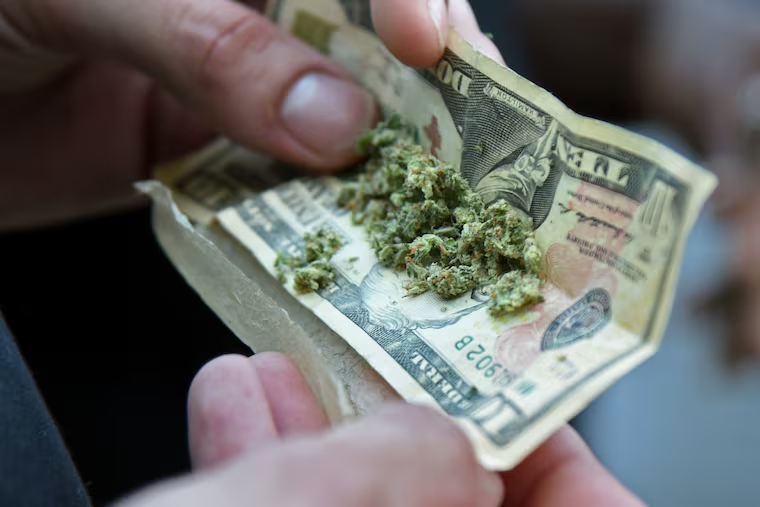Pa. medical marijuana sellers offer advice on weed legalization at Senate hearing
Pennsylvania state senators held their second hearing in a month on the potential legalization of recreational marijuana.

A group of industry representatives from medical marijuana sellers had some advice for legislators who were considering the legalization of recreational weed during a Pennsylvania Senate hearing Monday.
Key elements of the self-serving recommendations were: Keep taxes low enough to snuff out the illicit market, allow current medical marijuana companies to start selling recreational marijuana first, and set a firm deadline in the law for that to happen.
The hearing was the second in a series called by Republican State Sen. Mike Regan, a former law enforcement officer who represents parts of Cumberland and York Counties and chairs the Law and Justice Committee. Regan favors legalization largely because he wants to undermine criminal enterprises.
The goal of the information-gathering hearing was to allow legislators to hear what other states did well and what didn’t go well when they shifted from medical-only to recreational use. Pennsylvania’s medical marijuana law passed in 2016.
Medical marijuana is different from recreational marijuana. If recreational marijuana were available, the medical marijuana market could still exist. Among the differences would be how they were taxed.
» READ MORE: As recreational use of marijuana arrives across the region, jobs in weed are growing
High taxes were top-of-mind for Brandon Nemec, associate director of government and regulatory affairs for PharmaCann Inc., a Chicago company that grows and processes cannabis near Scranton and has seven Verilife stores in Pennsylvania.
Nemec cited taxes in the 40% range in California and Illinois as mistakes to avoid. They add to the cost of cannabis and allow the underground market to continue thriving as consumers try to save money.
Other company representatives, from Jushi Inc. and Justice Cannabis Co., echoed Nemec’s concern about tax rates during their remarks.
Consumer advocate Chris Goldstein noted after the hearing that those companies charge among the highest prices for marijuana ― $400 an ounce or more.
“Consumers could endure a 30% tax on a $100 ounce,” said Goldstein, regional director for the National Organization for the Reform of Marijuana Laws in Pennsylvania, New Jersey, and Delaware.
» READ MORE: Women of weed rise high in Philly
A Massachusetts lawyer who represents cannabis companies, Jesse Alderman of Foley Hoag LLP, told senators that legislation should set firm deadlines for when existing medical marijuana companies would be allowed to start selling to any adults.
Unmentioned was the controversy in New Jersey, where legal recreational sales still haven’t started even though legislation has been in effect for a year. Some of the state’s medical marijuana companies have criticized the N.J. Cannabis Regulatory Commission for blowing past what they believe was a Feb. 22 deadline in the law.
State Sen. Dan Laughlin (R., Erie), who a year ago became the first Senate Republican to support cannabis legalization, cautioned that legalization had little chance of making it through the legislature to the governor’s desk as long as cannabis is illegal on the federal level. Marijuana is still a schedule 1 drug, meaning that it is considered by federal officials to have no medical use and a high likelihood for abuse, putting it in the same class as heroin.
“That is a big, big issue for a lot of people in Pennsylvania, especially among a lot of those folks on my side of the aisle,” Laughlin said.
Laughlin also made a plug for a provision that would allow consumers to grow their own marijuana, a popular measure for advocates.
A third hearing is scheduled for next Monday afternoon, but Regan’s office did not say what the topic would be.